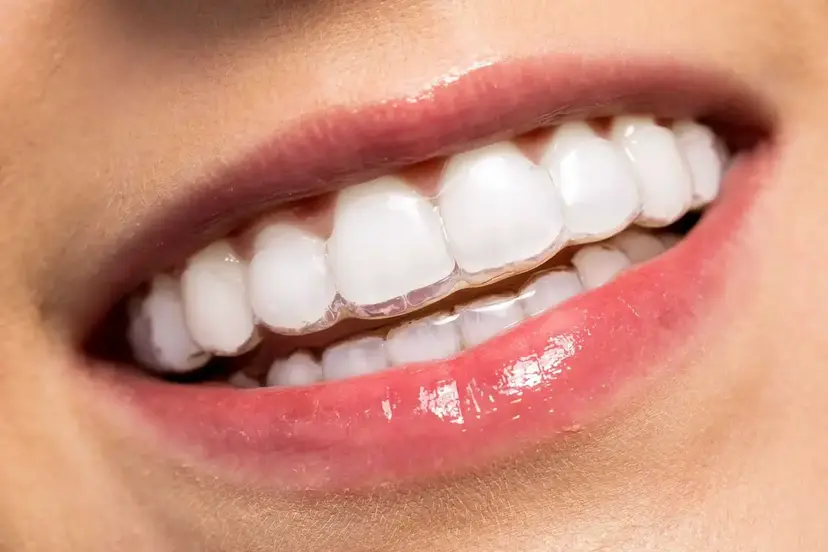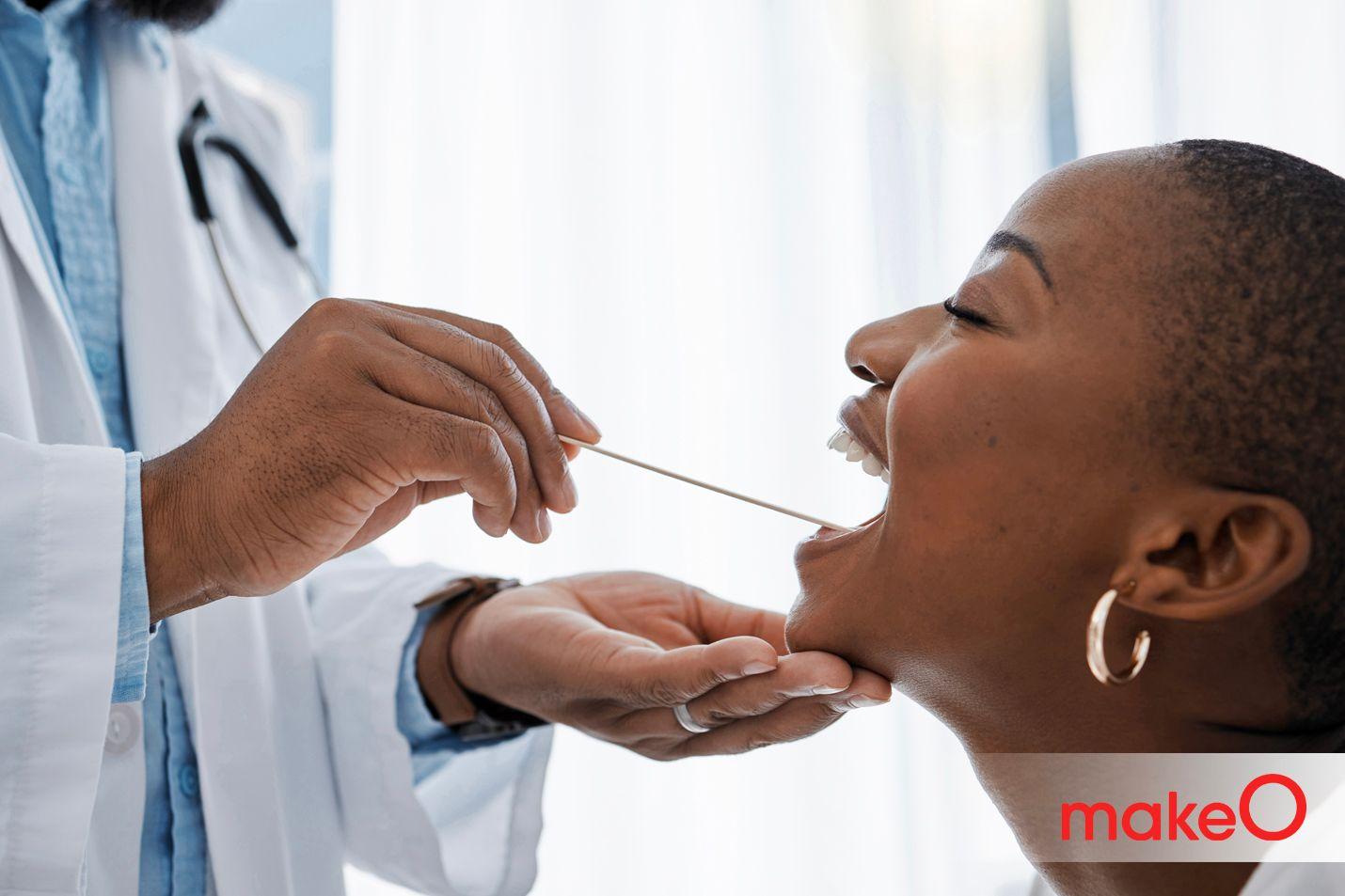MakeO blog
Oral cancer is a grave condition affecting numerous individuals worldwide. It involves the abnormal growth of cells in the mouth, encompassing the lips, tongue, cheeks, and throat. In this article, we will look into the various aspects of oral cancer, including oral cancer definition, affected areas within the mouth, causes, symptoms, preventive measures, and the importance of detecting mouth cancer early symptoms.
What is Oral Cancer?
Oral cancer signifies the abnormal and rapid growth of cells within the oral cavity. These malignant cells possess the capacity to invade adjacent tissues and potentially metastasize to other body parts if not treated promptly. Detecting warning signs of oral cancer in its initial stages significantly enhances the likelihood of successful treatment outcomes.
Areas in the Mouth Where Cancer Can Appear
Oral cancer can manifest itself in the following regions of the mouth. Keeping a watch on the early signs of mouth cancer is essential for a proper diagnosis and treatment.
- Lips
- Tongue
- Gums
- Cheeks
- Floor of the mouth
- Palate (roof of the mouth)
- Tonsils
- Throat
Oral Cancer Causes
Several factors contribute to the development of oral cancer in an individual. Knowing the causes of mouth cancer will help you to abstain from them and make health lifestyle choices.
- Tobacco use, such as smoking cigarettes, cigars, and pipes
- Excessive consumption of alcohol
- Infection with the human papillomavirus (HPV)
- Prolonged exposure to the sun, leading to lip cancer
- Inadequate oral hygiene practices
- Family history of oral cancer
- Weakened immune system
Oral Cancer Symptoms
Early detection of oral cancer is crucial by being aware of the signs and symptoms of oral cancer. The following symptoms are commonly associated with oral cancer:
1. Persistent Mouth Sores
One of the mouth cancer starting symptoms is sores within the oral cavity that do not heal within two weeks.
2. Red or White Patches
In the beginning of oral cancer stages, unusual patches of red or white coloration in the mouth can be observed.
3. Swelling or Lumps
Unexplained swelling or thickening of oral tissues can be one of the signs of oral cancer.
4. Difficulty Chewing or Swallowing
Challenges encountered while eating or swallowing can also be associated with one of the oral cancer risk factors
5. Unexplained Weight Loss
Significant weight loss without any identifiable cause can be an alarming sign of this grave condition.
6. Loose Teeth
Teeth becoming loose without apparent dental issues can also indicate early signs of oral cancer.
Tips to Prevent Oral Cancer
While some risk factors for oral cancer, such as family history or age, are beyond our control, adopting preventive measures can reduce the risk. Here are some essential tips for prevention of oral cancer:
1. Avoid Tobacco Products
Refrain from smoking or using smokeless tobacco. If you currently use tobacco, consider embarking on a journey to quit.
2. Limit Alcohol Consumption
Moderate or eliminate alcohol consumption, as excessive drinking significantly raises the risk of oral cancer.
3. Practise Good Oral Hygiene
Brush your teeth at least twice a day, floss daily, and regularly visit your dentist for check-ups and cleanings. You can use makeO toothsi electro which is a smart electric toothbrush to brush your teeth daily.
4. Protect Yourself From the Sun
Employ lip balm with sun protection factor (SPF), wear wide-brimmed hats, and minimise sun exposure to shield your lips from harmful ultraviolet (UV) radiation.
5. Maintain a Healthy Diet
Consume a well-balanced diet abundant in fruits and vegetables, as they provide essential vitamins and antioxidants.
6. HPV Vaccination
Consider receiving the HPV vaccine, as certain strains of the virus are associated with oral cancer.
7. Perform Regular Self-Examinations
Routinely inspect your oral cavity for any abnormal sores, lumps, or discoloration to detect any early signs of oral cancer.
Oral cancer demands our unwavering attention and awareness for mouth cancer curable solutions. By understanding its causes, recognizing its symptoms, and embracing preventive measures, we can reduce the risk of developing oral cancer. Regular dental check-ups and self-examinations play a pivotal role in early detection, significantly improving the chances of avoiding this condition.
FAQs
What are 5 signs of oral cancer?
Five indicators of oral cancer encompass persistent mouth sores that do not heal, patches of red or white coloration in the mouth, unexplained swelling or lumps, enduring pain or discomfort, and difficulties in chewing or swallowing.
What does Stage 1 mouth cancer look like?
In the initial stage of mouth cancer, known as Stage 1, the tumour is typically localised, small in size, and has not extended to nearby tissues. It may manifest as a small sore or a patch with either white or red appearance in the mouth.
Can mouth cancer be cured?
The curability of mouth cancer relies on multiple factors, including the stage of cancer at diagnosis and the overall health condition of the individual. Timely detection and appropriate treatment significantly enhance the likelihood of successful management and cure.
What age does oral cancer start?
Although oral cancer can develop at any age, it is more commonly detected in individuals above the age of 40. However, due to the rising prevalence of risk factors like HPV infection, younger individuals are also being diagnosed with oral cancer.
related categories
Related articles

Types of Braces: Removable vs Fixed Braces, Which is Right For You?

This Diwali, Smile Bright With makeO Teeth Whitening Kit

Dr. Pravin Shetty: Pioneer in Lingual Orthodontics & Innovative Smile Solutions
How do I Know I’m the Right Candidate for makeO toothsi Teeth Aligners?

